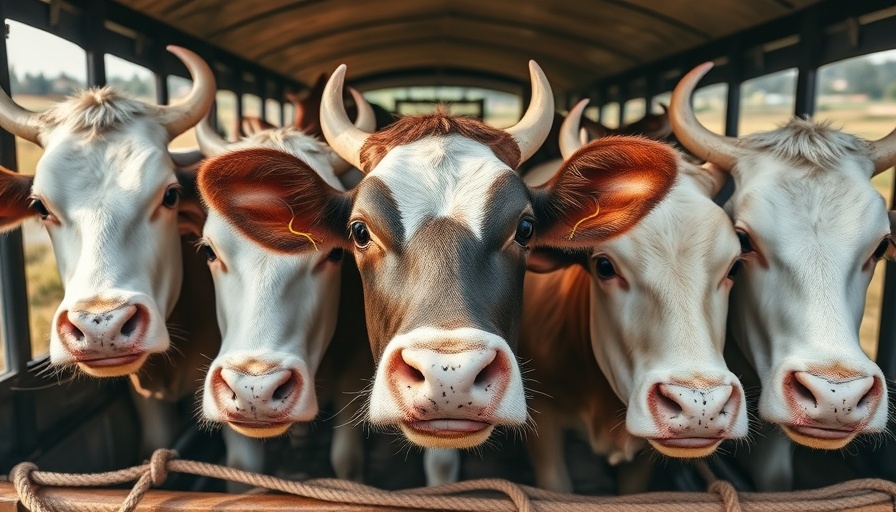
Understanding the New World Screwworm Threat
The U.S. border with Mexico is facing a significant health scare due to a flesh-eating parasite known as the New World screwworm, which has been detected in cattle. This parasite can infect animals and humans, leading to severe complications if not treated promptly. The decision to close the border aims to prevent the further spread of the parasite, which poses a grave risk to agriculture and public health.
Protecting Communities and Livelihoods
The agricultural communities near the border have expressed concerns regarding the impact of this closure on their livelihoods. Farmers rely heavily on the movement of cattle across borders for sales and breeding purposes. The New World screwworm outbreak not only threatens livestock health but could also decimate local economies dependent on agriculture.
What You Should Know
Awareness about the New World screwworm is crucial. The parasite lays its eggs in open wounds of animals, and as larvae, they eat the surrounding tissue. While there have been no human cases reported linked to this outbreak yet, understanding how it spreads can help maintain public safety. Close monitoring and swift action can prevent a potential health crisis.
Future Implications and Migration Patterns
This incident serves as a reminder of the interconnected nature of our ecosystems and the impacts of agricultural practices on health. As climate change alters migration patterns of wildlife, diseases like the New World screwworm may find new avenues to spread. It's essential for both communities and policymakers to recognize and prepare for the broader implications of such outbreaks in the context of climate change and biodiversity.
The U.S. border closure over the screwworm outbreak highlights the delicate balance between protecting public health and maintaining economic stability. For communities reliant on cross-border trade during these uncertain times, it is a call to remain vigilant and adaptable, prioritizing both animal and human health while finding solutions that mitigate economic impacts.
 Add Row
Add Row  Add
Add 



 Add Row
Add Row  Add
Add 

Write A Comment